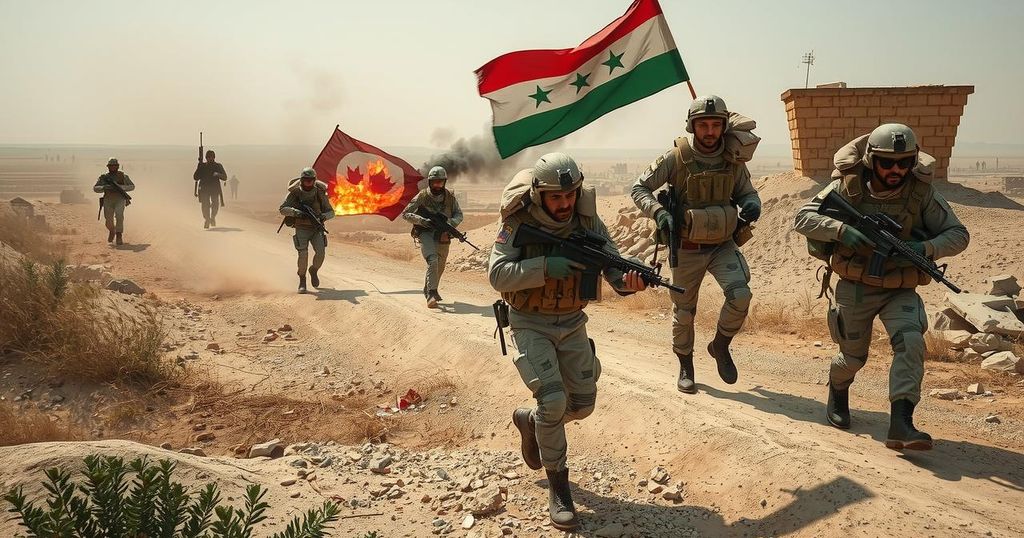On Friday, Syrian rebels achieved notable advances at the outskirts of Aleppo, marking their biggest territorial gain in years amidst heavy retaliatory airstrikes from the Syrian government and Russian forces. They breached three neighborhoods after executing car bomb attacks targeting government soldiers, raising concerns about the escalating conflict dynamics.
On Friday, Syrian rebels made significant progress in their offensive against government forces by reaching the outskirts of Aleppo. This marks their largest territorial gain in several years, as confirmed by rebel sources and a British-based monitoring group. The opposition fighters have reportedly advanced into three neighborhoods at the edge of the city after executing two car bomb attacks targeting government soldiers. In response to these developments, the Syrian government, supported by Russian airpower, has intensified its airstrikes against rebel-held areas, particularly executing 23 strikes on the city of Idlib on the same day.
This renewed fighting underscores the fragile and volatile situation in Syria, with the rebels’ recent maneuvers reflecting both a resurgence of anti-government aggression and the ongoing struggle for control over major cities. The monitoring group noted the absence of immediate reports on casualties resulting from the car bombings, highlighting the chaos and unpredictability of frontline engagements in this protracted conflict.
These events unfold amidst a broader backdrop of a civil war that has spanned several years and involved multiple factions, with both local and international implications. The long-standing fight for Aleppo has historically been a focal point due to its strategic significance, and the recent advances could represent a turning point in the ongoing conflict.
The Syrian civil war has been ongoing since 2011, marked by conflicts between government forces and various opposition groups seeking to overthrow the regime of President Bashar al-Assad. The city of Aleppo, one of Syria’s largest urban centers, has been a battleground throughout this war. The recent advances by opposition fighters highlight ongoing tensions and shifts in control within this complex theater of war, where local and international interests intersect, further complicating the humanitarian and military landscape. The involvement of Russian military forces in support of the Syrian government has significantly affected the balance of power in the region. The role of airstrikes has been crucial in maintaining government territory, while rebel factions employ guerrilla tactics including car bombs to disrupt military operations and regain ground. In recent months, the situation has become more dynamic with increasing confrontations between governmental forces and rebel groups, exacerbating the humanitarian crisis faced by civilians caught in conflicts.
In summary, the significant advance of Syrian rebels onto the outskirts of Aleppo represents a critical escalation in the ongoing conflict, characterized by renewed military confrontations and governmental airstrikes. This development not only indicates a shift in territorial control but also underscores the precarious nature of the Syrian war, with ongoing implications for regional stability and humanitarian conditions. The situation requires continuous monitoring as both sides navigate the complexities of warfare and territorial claims.
Original Source: www.nytimes.com







